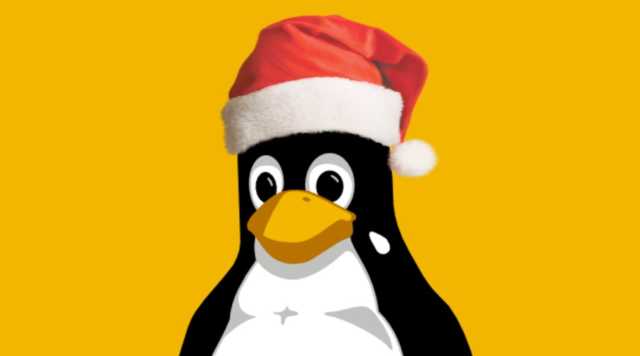A new version of the KDE Plasma desktop environment is out and, as you’d expect, the update is packed with new features, UI tweaks, and performance boosts.
KDE Plasma 6.3 is the fourth major update in the KDE Plasma 6.x series and it also marks the one-year anniversary of the KDE Plasma 6.0 debut – something KDE notes in its announcement:
One year on, with the teething problems a major new release inevitably brings firmly behind us, Plasma’s developers have worked on fine-tuning, squashing bugs and adding features to Plasma 6 — turning it into the best desktop environment for everyone!”KDE
How time flies!
Read on for a breezy overview of the key changes in the latest update!
KDE Plasma 6.3: What’s New?
Fractional Scaling Overhaul

Anyone KDE Plasma on a high-resolution display and making use of fractional scaling may find themselves noticing how much sharper UI elements look in this release compared to earlier ones – pin sharp Plasma desktop, ahoy!
KDE says it ‘overhauled’ how fractional scaling works in this release, with KWin making “a stronger effort to snap things to the screen’s pixel grid, greatly reducing blurriness and visual gaps everywhere and producing sharper and crisper images.”
And anyone eager to see just how tight the pixel-perfect alignment get can make use of the Zoom effect in Kwin, which now shows overlays grid on top of the screen at (very) high zoom levels.
Sticking with displays, screen colours are said to be more accurate when Night Light is active, whether using ICC profiles or not. Plus, KWin now offers the option to choose screen colour accuracy (albeit in some cases at the cost of increased resource usage).
Customisation

KDE Plasma 6.3 buffs its customisation potential by making it easier to clone panels in Edit mode (just click the ‘Clone panel’ button), and support scripting to adjust panel opacity levels and which screen in a multi-monitor setup a panel appears on.
Widget Explorer makes it easy to remove a widget, even if it’s not visible on screen/located on a display since unplugged, whilst widgets themselves are said to have a (slightly) translucent look to them.
Symbolic icons were added to the category sidebar in the Kickoff menu a few releases ago but those who aren’t a fan will be pleased to hear it’s now possible to change category icons to something else via the Menu Editor app.

Finally, no release of KDE Plasma is complete without a distinctive desktop background. I dare say some of those reading this post would be able to identify KDE Plasma releases based solely by the wallpaper each shipped with.
After several releases sporting digital illustrations, KDE Plasma 6.3 sees a return of KDE’s iconic abstract-y geometric background designs – a fine return to form!
Creativity

An array of digital art-focused features were carried in KDE Plasma 6.2 last October, and this area benefits from further refinement here in KDE Plasma 6.3 with new options to customise, fine-tune, and adjust graphics tablet behaviour.
The Drawing Tablet page in System Settings is reworked and reorganised, with tabs splitting out settings into logical groupings and new configuration options added, including:
- Map the tablet canvas to the entire screen
- Tablet calibration is now more accurate
- Stylus testing feature shows detail on tilt and pressure
- Adjust stylus pressure curve and range
- Re-map/swap stylus’ button functions
After adjusting graphics tablet settings it may be desirable to know what was changed, so the System Settings app’s nifty ‘Highlight changed settings’ toggle now works on the Drawing Tablet page too.
In all, another solid set of updates for KDE creatives to take advantage of.
CPU Monitoring
A big complaint with most GUI system monitor tools (not just KDE’s) is how they tend to use a lot of resources whilst monitoring resources – a bit catch 22, to a degree.
Perhaps aware of that, KDE devs saw scope for improvement in KDE Plasma’s native System Monitor app, with CPU monitoring said to be more accurate than before and using ‘vastly fewer CPU resources’ whilst doing its job.
Welcome, for sure.
Discover
As the default software/app management tool in KDE Plasma, Discover sees some appreciable implements in this update, including several that help flesh out its support for Flatpak.
Discover now highlights pending permissions changes in sandboxed app updates, supports the flatpak:// URL scheme, and makes it clear when if a Flatpak app is ‘verified’ through a trusted sources, such as Flathub.
Snap also sees some buffs, including better refresh support (‘refresh’ is the Snap term for updating) by allowing individual apps to be refreshed (rather than all). It also now sets a proper percentage and download speed during install, keeping users aware.
Informational Uptick

Plasma 6.3 introduces a new background service able to detect and report when the kernel terminates an app due to a lack of system monitor. A notification appears to say which app was affected and offers tips on how to avoid it happening again.
On the subject of notifications, if notifications arrive when Do Not Disturb mode is active Plasma will now only show the number of missed notifications when turning it offer, rather than sending an endless stream of them!
Elsewhere, the Info Center tool fleshes out its statistics to show more detail on system GPUs and relay detail on battery charge cycles (nixing the need to resort to other ways to find that info out).
Beyond
KRunner (and searches made using it, as it does more than simply return a list of matching apps) now supports Page Up and Page Down keys and ctrl + arrow keyboard shortcuts to hop between categories, which is handy.
Other notable changes and new features in KDE Plasma 6.3 include:
- Option to auto-disable laptop touchpad when mouse connected
- Bluetooth “Pair Device” is now always visible
- Plasma can generate random passwords for network hotspots
- Digital Clock widget displays all events on days with more than five
- Show Target menu entry when right-clicking a symlink
- SDL Game Controller API replaced with Joystick API
- Disks & Devices applet can now eject non-mounted optical media
- Windows below others no longer jump to the top when dragging a file out
- Volume OSD only shows if using keyboard shortcuts or scrolling over applet
- New Help category in launcher, and Settings category removed
- Spectacle screenshot/screen recording tool is now included in KDE Plasma
- Screen-recordings can be saved as animated WebP or GIF
- Weather widget can use Deutcher Wetterdienst for DE forecast data
- Plasma Browser Integration support for Mozilla Firefox Flatpak
- Kickoff now changes categories on click (switch-on-hover option available)
Naturally, there’s plenty more to Plasma 6.3 than the cherry-picked highlights above. There are countless bug fixes, accessibility improvements, smaller tweaks, requisite package, framework, library, and tooling uplifts and more.
Refer to the raw changelog should you wish to pore over a list of every fix, tweak, and commit made between KDE Plasma 6.2.5 point release and this new KDE Plasma 6.3.0 stable release.
Get KDE Plasma 6.3
KDE Plasma 6.3 is rolling out to KDE neon (stable edition) users from today, rolling-release Linux distributions should be pushing the update out in the near future.
Users of fixed-release distros (like Ubuntu) won’t receive this update automatically but it may become available by way of third-party repos/PPAs in due course.
Source code is, as always, available on the KDE website.
Be sure to drop your thoughts on this release down in the comments. I’m keen to know how you feel about the KDE Plasma 6.x series’ progress.






Je moet ingelogd zijn om een reactie te plaatsen.